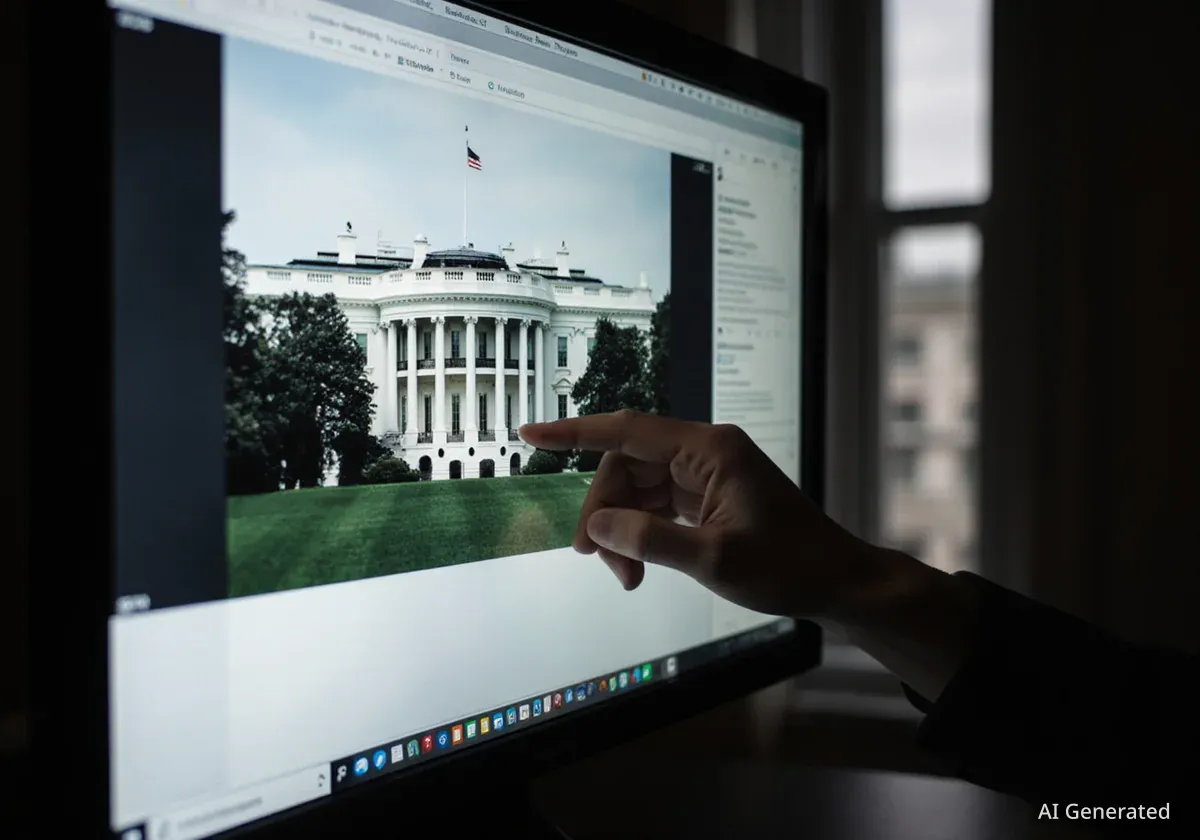National Public Radio (NPR) has initiated legal action to prevent the Corporation for Public Broadcasting (CPB) from distributing a $57.9 million grant. This grant is intended for a new public media consortium that will manage the satellite system for public radio stations across the United States over the next five years. The lawsuit, filed Friday in federal court, requests a temporary restraining order, escalating a dispute within the public media sector.
This legal challenge emerges as public broadcasting faces significant financial pressures. Congress recently eliminated all previously approved public broadcasting funds for the next two years, adding to the urgency of funding decisions within the system.
Key Takeaways
- NPR has filed a lawsuit to stop a $57.9 million grant to a new consortium.
- The grant is for operating the Public Radio Satellite System (PRSS).
- NPR has managed the PRSS for over 40 years.
- CPB awarded the contract to Public Media Infrastructure (PMI), a new group.
- NPR alleges the decision is politically motivated and breaches prior agreements.
Satellite System Management at Center of Dispute
For more than four decades, NPR has overseen the Public Radio Satellite System (PRSS). This system is vital for hundreds of public radio stations and independent producers. It allows them to share programming nationwide. Many stations using the PRSS are not formally affiliated with NPR.
The grant in question is separate from NPR's general federal funding. Historically, federal funds have accounted for a small portion of NPR's annual operating budget, typically 1% to 2%. In contrast, Public Broadcasting Service (PBS) member stations often receive about 15% of their funding from CPB. Public radio stations generally receive around 10%, though this percentage can vary.
Fact: Public Media Funding
All public media subsidies are scheduled to conclude with the start of the new federal fiscal year, which begins this Wednesday. This timeline adds pressure to the ongoing financial and operational decisions.
NPR Alleges Abrupt Reversal by CPB
According to court documents filed by NPR, the organization was informed by CPB in early April that it would receive over $30 million. This funding was intended for the continued operation of the satellite service for the next three years, along with funds to cover the remainder of the current fiscal year.
However, NPR's filing states that CPB abruptly changed its decision. An executive from CPB reportedly informed NPR that a board-level decision had been made, determining that NPR could no longer be involved in managing the system.
Background: The Public Radio Satellite System (PRSS)
The PRSS is a critical infrastructure for public radio. It ensures that diverse programming, from news and cultural shows to music, can reach local stations across the country. Its reliable operation is essential for the daily functioning of many public radio outlets.
New Consortium Awarded Contract
On Friday, CPB officially announced its decision. It awarded the satellite system contract to a newly formed group called Public Media Infrastructure (PMI). This consortium includes several notable organizations in public media. Among them are New York Public Radio, PRX, American Public Media, and the Station Resource Group, a consultancy.
The National Federation of Community Broadcasters is also part of PMI. This organization represents smaller stations, many of which do not have a formal affiliation with NPR. This broad representation suggests an effort to include various stakeholders in the new management structure.
"We enter into this motion with great reluctance," NPR stated. "This decision has undercut the bonds between our two organizations forged over many decades of service to the American people, and stands as a regretful coda to CPB’s prior history of support for the First Amendment."
Allegations of Political Motivation and Legal Arguments
NPR's legal team, led by attorneys Miguel A. Estrada and Theodore J. Boutros Jr., argued in the Friday filing that CPB's decision is politically motivated. They suggest it follows the lead of the White House, referencing a broader political climate.
The filing asserts that CPB's actions contravene both the First Amendment and the Public Broadcasting Act of 1967. This legal argument frames the dispute as a matter of constitutional rights and established public policy.
NPR's court documents specifically claim that transferring the satellite system contract to PMI "threatens NPR’s contractual relationships with the Interconnected Stations and undermines the hard-earned trust that NPR has built with those stations over decades of service." This suggests concerns about the stability of existing partnerships and the integrity of the public radio network.
The organization further contends that without judicial intervention, it will be unable to reverse CPB's decision in court. NPR anticipates that CPB will significantly reduce its operations and retain only a limited staff to manage its closure, making future legal challenges difficult.
CPB Defends Its Decision
In response to the lawsuit, CPB released a statement defending its actions. A spokesperson for CPB stated late Friday, "We are confident that our actions serve the best interests of the future of public radio."
The CPB spokesperson also expressed disappointment regarding NPR's lawsuit. "We are disappointed that, at a time of tremendous challenge for all public media with substantially diminished resources, NPR is forcing CPB to expend scarce funds that would otherwise support the public media system in defending a lawsuit that has no merits and ultimately does not benefit the system." This statement highlights the financial strain on public media and frames the lawsuit as a diversion of limited resources.
The outcome of this legal challenge could significantly impact the operational structure and funding landscape of public radio in the United States for years to come. The dispute underscores the complex relationships and financial pressures facing public media organizations.




